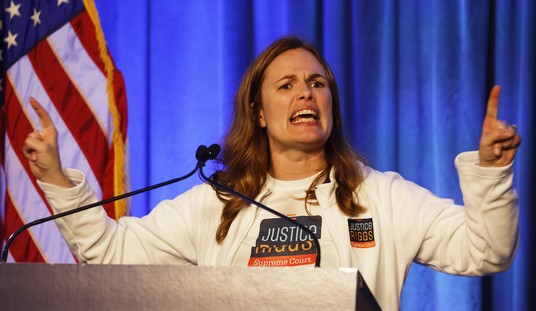We hear a lot from the free healthcare for all crowd about how no one should ever go bankrupt because of medical costs but what about getting divorced just to qualify for Medicaid when the government has made that your only option for assistance? A Texas couple is considering just that in order to cover the high costs of care for their disabled daughter.
Jake and Maria Grey have been married for nine years.
Their 6-year-old daughter Brighton has Wolf-Hirschhorn Syndrome, a rare chromosomal disorder that requires full-time care. Developmentally, Brighton is still a baby. She has hearing and vision impairment and seizures.
“You know when you have a newborn, everything gets really stressful. You really have to adapt to someone needing you 24-7 all the time. We’ve had a newborn for six and a half years,” Maria told WFAA.
The couple’s family said they spend $15,000 a year on her medical expenses and with the father’s $40,000 salary, they don’t qualify for Medicaid, which has now left their family financially fragile.
The couple is making an extreme decision about their marriage to help with all the medical bills.
“It would just be to get a divorce. It would be to not be together to get our child what we need,” Maria said.
By divorcing, Maria would become a single, jobless mother of two and would qualify for Medicaid to help with their finances immediately.
On the surface this sort of thing sounds absurd but almost every instance of government “helping” people comes with unintended consequences that hurt. The decision that the Greys are contemplating is nothing new. The cultural problem of fatherlessness in low income urban communities is a direct result of government assistance inadvertently rewarding poor single moms.
The Greys don’t want to get a divorce but they’ll do want to take care of their daughter.
The couple fears they have no choice.
“It’s morally wrong, I feel like, and I think it’s conflicting for me too, because I feel like what’s happening to us is morally wrong,” Jake said.
The left will respond to this by claiming it proves the need for a Medicare-for-all solution, but it really proves that a top down, one size fits all approach is exactly what we don’t need. For all their feigned concern about diversity, they fail to understand that people’s healthcare needs are far more diverse than their levels of skin pigment. That failure results in elderly nuns being forced to pay for birth control coverage. Centralized decision making is inherently inefficient and prone to error so it should be avoided whenever possible.
It’s possible that a top down approach might alleviate the Grey’s problem but it’s probable that it would create dozens more in the process. We need an approach that allows for innovation in smaller communities rather than blind adherence to bureaucratic dictates from a non responsive government agency.
What we need is a government that recognizes the value of subsidiarity.
One of the key principles of Catholic social thought is known as the principle of subsidiarity. This tenet holds that nothing should be done by a larger and more complex organization which can be done as well by a smaller and simpler organization. In other words, any activity which can be performed by a more decentralized entity should be. This principle is a bulwark of limited government and personal freedom. It conflicts with the passion for centralization and bureaucracy characteristic of the Welfare State
The best decisions are usually made by people closest to the problem. When the people closest to the problem are constrained by a massive and far removed federal bureaucracy, they are placed in situations where the best decision is still something terrible.













Join the conversation as a VIP Member